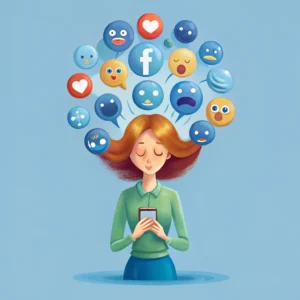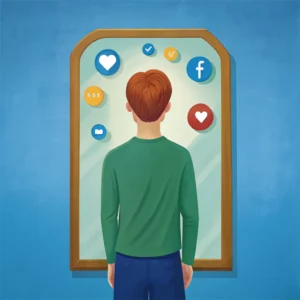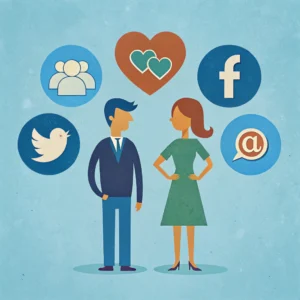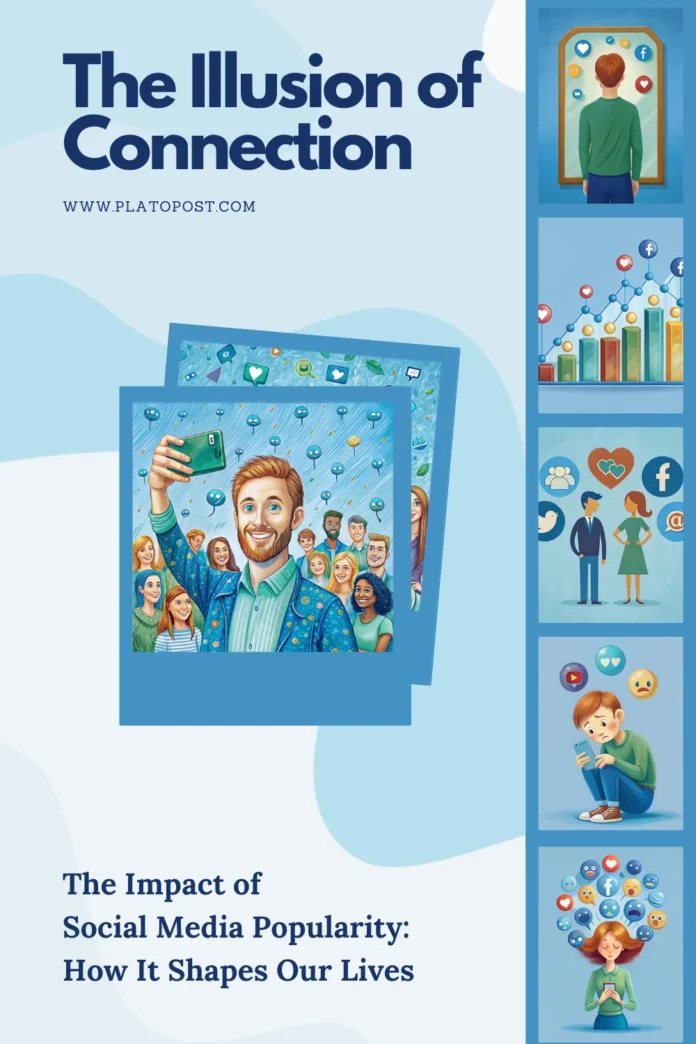The internet has evolved rapidly over the past couple of decades, reshaping our lives in ways we never imagined. With this digital transformation, the meaning of “social” has changed drastically. Today, your social life is often measured by your social media popularity—how many followers, retweets, post shares, or likes you can accumulate. But let’s pause for a moment and ask: does your social media presence really reflect your social life?
Social media popularity: A new identity?
As society increasingly values social media popularity, these online profiles have started to become an extension of our identities. Particularly among younger generations, there’s an unrelenting drive to build a larger online following. Every day, new platforms appear to capitalize on this, enticing users with the promise of more likes, more shares, and more followers. But does chasing this digital approval equate to a richer, more fulfilling life?
It’s become clear that young people are especially captivated by their social media image. They share every detail of their lives online—what they’re eating, where they’re going, who they’re with. Yet, if you look closely, you’ll often see a group of friends at a café, not talking or laughing, but absorbed in their phones, chasing those likes. Smiles are reserved for selfies, and joy comes from the moment the “likes” start pouring in.
Learn more about increasing social media followers using dating apps
The illusion of connection
This obsession with social media popularity creates a concerning disconnect. While we may be more “connected” than ever online, real-life interactions are becoming increasingly hollow. People are more focused on their virtual audience than the friend sitting across from them. The pressure to present a perfect, curated version of life can lead to feelings of isolation and, ironically, loneliness.
It’s no surprise that studies show how social media use can contribute to anxiety, stress, and depression. Social validation is a powerful force, but it’s often fleeting. And while social media has its merits, it’s crucial to remember that it’s only a tool, not the foundation of our social lives.
Which social media platform should I use?
The platform you choose can significantly affect your social media popularity. Each platform caters to different audiences and content types. For instance, Instagram and TikTok prioritize visual content like photos and videos, making them perfect for influencers and creatives. Twitter is a hub for concise thoughts and trending topics, while LinkedIn is ideal for professional networking. Understanding your goals will help you decide which platform aligns best with your content and audience.
Learn more about 5 free colleges in the U.S. for international students

Side effects of social media popularity
When I first wrote this article years back, many people were already concerned with the side effects of the social media. However, they have stayed as minorities. Even more, they were labeled as outdated. Today, social media popularity is a defining factor in today’s world, shaping how we interact, present ourselves, and even how we feel about our worth. This article delves into the critical issues surrounding social media’s influence, from the platforms we use to the psychological and social consequences of this constant online presence.
Can social media cause depression?
Yes, numerous studies link excessive social media use to increased rates of depression, especially among young people. Constantly comparing yourself to others’ curated, “perfect” lives can erode self-esteem and lead to feelings of inadequacy. This relentless pursuit of social media popularity can leave users feeling unfulfilled, as the validation they seek through likes and followers rarely translates into true satisfaction.
Can social media cause anxiety?
The pressure to maintain a constant online presence can also trigger anxiety. People feel compelled to keep up with trends, post regularly, and engage with followers, all while trying to maintain a polished image. The fear of missing out (FOMO) on what’s happening online or the need to meet a certain level of popularity can create constant anxiety. Today, social media platforms set their algorithms to specifically favor on people who post various contents multiple times a day.
Can social media be addictive?
Yes, social media has an addictive quality. Platforms are designed to keep users scrolling through endless content, and the dopamine hit from receiving likes or comments can make people crave more. This addiction to social validation can easily spiral, leading users to spend hours on their phones without realizing it, further isolating them from real-life interactions.
Can social media cause stress?

The need to present a perfect life online can lead to immense stress. Users often feel the pressure to keep up with an idealized version of themselves, which leads to burnout. The stress is not just about creating content but about the expectations from followers and the fear of negative comments or lack of engagement.
Can social media cause eating disorders?
The pressure to look “perfect” as portrayed by influencers and celebrities can contribute to body image issues and even eating disorders. Young people, in particular, are bombarded with edited images and filtered photos that set unrealistic beauty standards. The pursuit of likes can lead to unhealthy behaviors and a distorted view of self-worth tied directly to physical appearance.
Can social media destroy real-life communication?
Ironically, while social media connects people online, it can disconnect them from those around them. Many people find themselves more engaged with their phones than with face-to-face interactions, creating a barrier in personal relationships. The more time spent on social platforms, the less time and energy people have for meaningful real-life communication. If you go to any café or restaurant around the world, you just see people scrolling through their phones while sitting as a group of friends.
Find out how to make money as an interior design student
How Social Media Affects Relationships
Social media can introduce tension into relationships, especially with the constant exposure to others’ highlight reels. Comparison, jealousy, and insecurity can arise when partners or friends measure their relationships against the seemingly perfect ones they see online. In extreme cases, social media can even lead to mistrust or feelings of inadequacy in personal relationships.

How social media affects self-esteem
For many, social media is a tool for validation. However, when self-worth becomes tied to likes, comments, and followers, it can significantly impact self-esteem. Those who don’t receive as much online attention may begin to feel less valued. The gap between online and real-life personas can also create an identity crisis, leading to further dissatisfaction.
If you ever feel like you need help, you can always reach out to an organizations like NAMI. Remember, you are not alone!
Striking a balance
I will not deny that social media is a part of our lives now and it would just be ignorant to avoid its benefits. However, we should educate young people to be aware of its affects.
While social media popularity can offer moments of connection and validation, it’s essential to understand its deeper impact on mental health, relationships, and self-esteem. Striking a balance between online presence and real-life social interactions is crucial. In this increasingly digital world, we need to focus on fostering genuine relationships rather than being consumed by the numbers on our screens. By acknowledging the positive and negative effects of social media, we can take control of our usage and ensure that we use these platforms for connection and growth, rather than as a measure of our worth.


